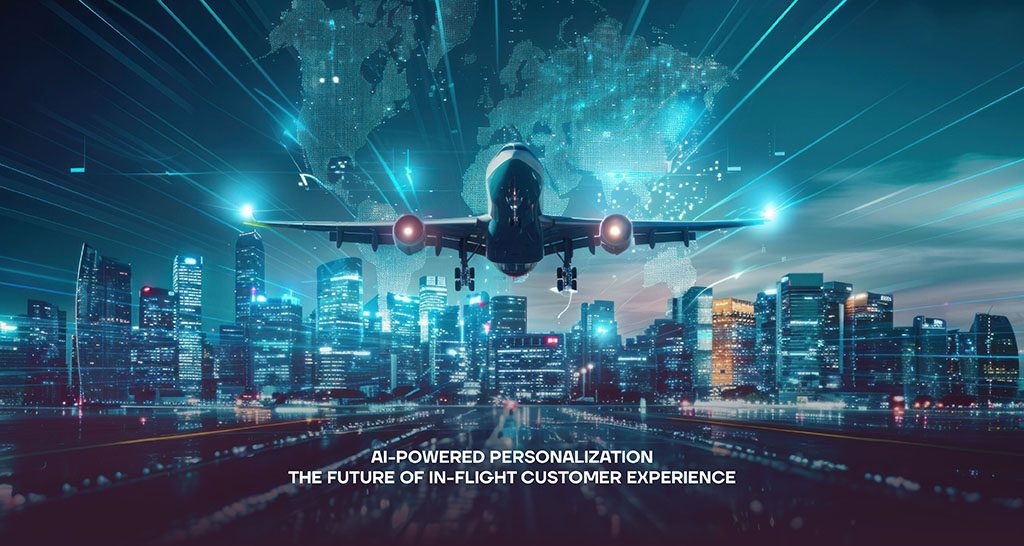AI-Powered Personalization
The airline sector has historically prioritized providing passengers with a comfortable and convenient travel experience. Nevertheless, as customer expectations shift and competition grows fiercer, the demand for a more profound and personalized experience has become increasingly critical. This is where Artificial Intelligence (AI) comes into play, a technology that has the capacity to transform the interactions between airlines and their customers. By leveraging AI-driven personalization, airlines are setting the stage for a future in which each flight is distinctly customized to meet the unique needs, preferences, and aspirations of individual travelers.
The Growing Demand for Personalization in Air Travel
In today’s era of extensive connectivity and data-informed decision-making, travelers seek more than merely a seat, a meal, and in-flight entertainment upon boarding an aircraft. Contemporary passengers desire an experience that is tailored to them, considering their preferences, previous behaviors, and individual requirements. This may include specific meal selections, favored entertainment options, or even modifications to cabin settings to enhance comfort. Personalization has emerged as a crucial factor in distinguishing the customer experience.
AI’s Role in Enhancing the In-Flight Experience
AI technologies, especially machine learning algorithms, are leading the way in providing personalized experiences. By examining data from multiple sources, including booking history, travel habits, and real-time in-flight preferences, airlines can acquire profound insights into passenger behavior and predict their needs in ways that were once beyond imagination.
Tailored In-Flight Entertainment
One of the most significant uses of artificial intelligence in personalizing in-flight experiences is in the realm of entertainment. The era of passengers being restricted to a standard array of films and television programs is now behind us. AI-driven systems can examine a passenger’s past selections, viewing patterns, and even their social media activity to propose content that aligns with their individual tastes. For instance, frequent travelers who enjoy action films may receive suggestions for the latest blockbuster releases, while those with a penchant for history or nature might be directed towards relevant documentaries. By providing a tailored entertainment offering, airlines can greatly improve the overall in-flight experience.
Personalized Meal and Beverage Services
Artificial intelligence can assist airlines in offering more customized meal and beverage selections, thereby improving passenger comfort and satisfaction. By monitoring dietary preferences and restrictions, such as vegan, gluten-free, or halal options, along with analyzing previous orders, airlines can present personalized meal recommendations to travelers prior to boarding. In certain instances, AI can provide real-time suggestions based on a passenger’s mood or other contextual information, ensuring that the meal service aligns seamlessly with individual preferences. This degree of personalization not only enhances customer satisfaction but also cultivates a sense of loyalty and connection to the brand.
Customized Cabin Environment
For numerous travelers, the comfort experienced during a flight holds equal significance to the destination. Systems powered by artificial intelligence have the capability to enhance the cabin atmosphere in real-time, tailored to the unique preferences of everyone. This may involve modifications to the temperature, lighting, and seating arrangement, all customized to suit the passenger’s liking. Furthermore, AI can provide personalized noise-canceling options or suggest an optimal sleep schedule based on the passenger’s previous behaviors and travel patterns. These modifications can be easily accessed through the airline’s application or the onboard entertainment system, ensuring a seamless experience that caters to the specific comfort requirements of the passenger.
Intelligent Customer Service and Assistance
AI-driven chatbots and virtual assistants represent a significant aspect of in-flight personalization. Currently, these systems assist passengers with inquiries regarding their flights, baggage, and various services. However, there is potential for further enhancement to provide a genuinely personalized experience. By examining a passenger’s booking history, preferences, and prior interactions with the airline, AI systems can deliver more precise and context-aware support. For instance, a virtual assistant could identify that a passenger has previously traveled to a specific destination and subsequently provide travel advice or local suggestions, thereby enriching the overall travel experience.
Challenges and Ethical Considerations
The advantages of AI-driven personalization are evident; however, it is essential to address the accompanying challenges and ethical dilemmas. Foremost among these is the issue of data privacy, as AI systems depend significantly on the gathering and examination of personal data to provide precise recommendations and forecasts. Airlines are obligated to maintain transparency regarding their data usage and implement safeguards to protect sensitive information pertaining to passengers.
The Road Ahead
As technology advances, the potential for AI-driven personalization within the airline sector is boundless. The future of air travel is set to offer an experience that is increasingly tailored, intuitive, and fluid. By leveraging the capabilities of AI, airlines can craft a personalized travel experience that not only fulfills but surpasses the demands of the modern, tech-oriented traveler.



Discussion about this post